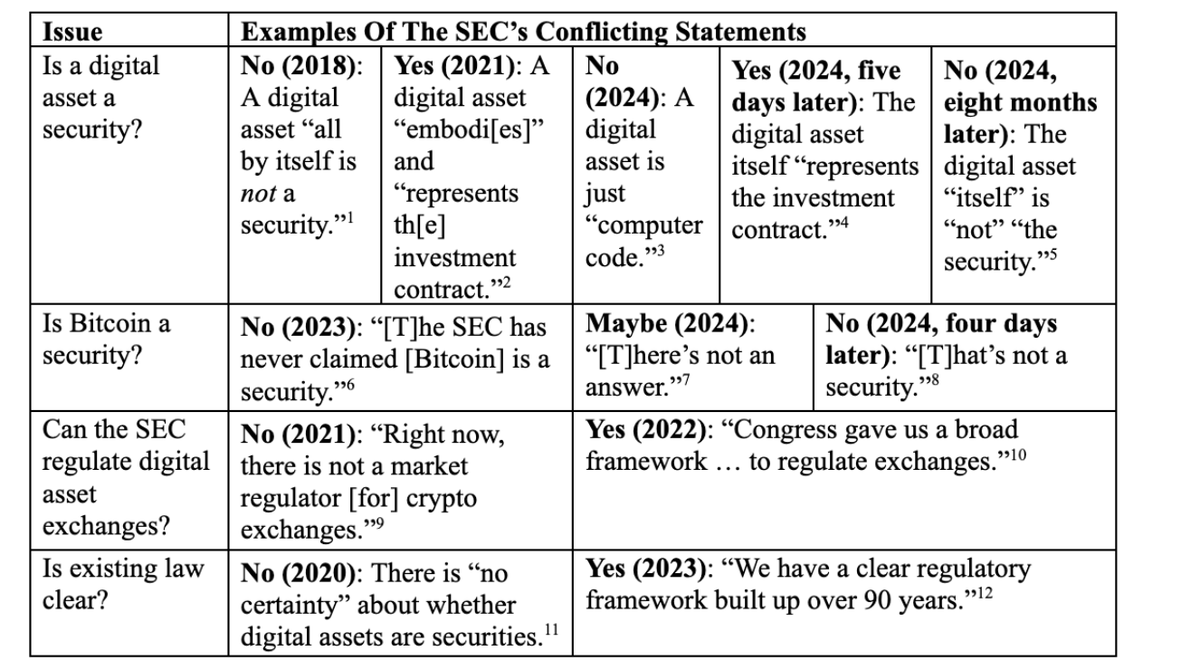Last updated:
 Why Trust Cryptonews
Why Trust Cryptonews

Coinbase CEO Brian Armstrong has strongly criticized the U.S. Securities and Exchange Commission (SEC), calling for significant changes in its leadership. Armstrong suggested that the agency’s next chair should withdraw “frivolous” cases and issue a public apology for the regulatory damage inflicted on the American crypto industry.
Armstrong’s call comes as the SEC’s inconsistent approach to regulating digital assets has left many companies and stakeholders uncertain about compliance requirements, which has been an obstacle to U.S.-based innovation.
According to Armstrong, the next SEC chair must address this inconsistency and commit to clear, well-defined regulations to restore trust in the institution. The call came right as the 2024 U.S. presidential election could impact future SEC leadership and crypto regulatory policies.
Coinbase CEO Calls For Clarity and Apology: Will SEC Apologize?
Armstrong’s criticism focused on the SEC’s changing narratives around digital assets and crypto exchanges. For instance, in 2018, the SEC initially stated that digital assets like Bitcoin do not qualify as securities.
However, by 2021, the agency shifted, claiming that digital assets could represent investment contracts, which means they can be treated as securities under specific conditions.

This frequent reclassification has created confusion, further compounded by the SEC’s stance in 2024 that digital assets are merely computer code, only to reverse itself within days by stating that they are investment contracts once more.
The table clearly illustrates that these shifting definitions create an unpredictable regulatory landscape that hinders innovation and investment in the U.S.
The SEC’s inconsistent regulatory tone extends to crypto exchanges. In 2021 the agency acknowledged a lack of regulatory authority over these platforms.
But by 2022, it claimed to have broad congressional authority to oversee crypto exchanges, leaving crypto companies in regulatory limbo.
Such inconsistencies limit the ability of exchanges like Coinbase to comply, creating a regulatory environment that has driven some businesses to explore offshore opportunities where regulations are clearer and more stable.
Armstrong believes the next SEC chair should acknowledge these missteps and work toward policies that foster a fair and consistent regulatory framework.
Legal Disputes and the Future of U.S. Crypto Regulation
The SEC filed suit against Coinbase over its staking-as-a-service program, which the agency claimed constitutes an unregistered offering.
Coinbase has countered that the SEC’s regulatory standards are too vague, challenging the SEC in court after the agency dismissed its request for clearer rules governing crypto platforms in 2022.
This legal back-and-forth has pushed the industry’s demand for clear, well-defined regulations rather than what many see as retroactive enforcement.
Amid these regulatory backdrops, Armstrong has recently endorsed pro-crypto Senate candidates to achieve a more crypto-friendly regulatory environment.
Notably, he supported David McCormick, a former Bridgewater Associates CEO running for Senate in Pennsylvania, and John Deaton, a prominent pro-XRP lawyer challenging Massachusetts Senator Elizabeth Warren.
Armstrong has also openly criticized Warren for allegedly encouraging current SEC Chair Gary Gensler to stifle the crypto industry in the U.S.
He contends that electing pro-crypto officials could foster regulatory reform and facilitate a more constructive relationship between the crypto industry and government agencies.
The possibility of a leadership change at the SEC looms large in the upcoming presidential election. Former President Donald Trump has vowed to dismiss Gensler on his first day if re-elected, with other Republican leaders also advocating for new leadership at the agency.
Meanwhile, pro-crypto voices in the industry have called for the appointment of a chair with a more forward-looking stance, and people like Rep. French Hill also recently called for SEC leadership change in 2025.














